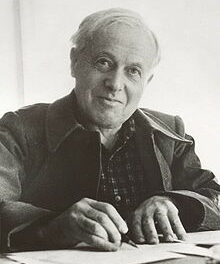We support our Publishers and Content Creators. You can view this story on their website by CLICKING HERE.
Working toward the restoration of the original American exceptionalism is a good idea, not to mention a more truly progressive one. Such an effort is still possible.
Remember President Barack Obama’s response to a question concerning his thoughts on American exceptionalism? Yes, the president replied, he believed in American exceptionalism—just as a Brit believes in British exceptionalism or a Greek believes in Greek exceptionalism. A perfect Obama response. Glib and flip. Right and wrong.
Of course, he was right that most everyone believes that one’s country is unique in some exceptional way. At the same time, Obama was also simultaneously saying something less than that—and something much more than that. On the one hand, he was saying that the question was essentially unimportant, even meaningless. On the other hand, he was implying that there was nothing that was truly exceptional about American exceptionalism.
But there was—and still is—something exceptional about this country, if precariously so. And I suspect that at some level Obama knew as much, even as he was—and still is—at work trying to steer our now precarious exceptionalism toward its ultimate demise.
Before defining this exceptionalism, let’s recall a few of candidate Obama’s words on the eve of his 2008 election. He told his cheering listeners that they were just days away from “fundamentally transforming the United States of America.” Hyperbole? To be sure. But there was a point—and a goal—behind such fundamentally radical rhetoric.
So just what is exceptional about America to this believer in American exceptionalism? Answering that question returns us to the intentions of the founders, and especially to the design and designs of James Madison. Put simply, Madison sought to have his cake and eat it, too, by instituting a republican form of government that extended over a huge land mass. Conventional wisdom at the time held that representative government could only work over a small piece of territory. Madison was determined to prove conventional wisdom wrong.
Then toss in to this mix the only true invention of the founders: the electoral college, which was designed to assure that a president would have broad support throughout the country and not win the office by dominating one section of it by a huge margin.
Madison’s 10th Federalist and 51st Federalist papers best expressed his general thinking. “If men were angels, no government would be necessary,” he wrote in Federalist #51. And “if angels were to govern men, neither external nor internal controls on government would be necessary.”
His 10th Federalist concerned factions and liberty. More specifically, he dwelt on the problem of factions and the preservation of liberty. According to Madison, liberty is to faction as air is to fire. Both liberty and air are necessary for life, but each bodes trouble. Air assures the likelihood of fires; and liberty means that a free people will inevitably organize themselves into various interest groups (or “factions”), not all of which will always have either the common good or the good of republican government in mind.
How then can the influence and power of factions be kept under control without destroying liberty? Madison’s answer was paradoxical: increase the number of factions, thereby making it more difficult for a single faction, or even a coalition of factions, to gain permanent control.
So far, so good. But how to assure a sufficient number of competing factions? Simply increase the size of the country, thought Madison. As he saw it, the larger the territory, the greater the number of competing factions, thereby automatically and dramatically reducing the prospect of dominance by a single faction or by a permanent alliance of factions.
This was the essence of Madison’s commitment to an informal system of checks and balances. Of course, Madison was also the father of the formal checks and balances of the Constitution. In some crucial ways, James Madison was our most important founding father, because he was preoccupied with one crucial goal above all others: dividing power in all sorts of ways, whether among factions or between the federal government and state governments, whether among state governments or between the two houses of Congress and among the three branches of government.
Why this preoccupation? Because Madison knew that this exceptional country was going to be populated with—and governed by—unexceptional people, that is to say those who were not “angels,” which is to say everyone. In other words, at the heart of American exceptionalism is the idea, and the reality, that a geographically immense country could only function as a true republic, so long as power was never concentrated.
That was the American story from the outset. It has never been the Russian story or the Chinese story. It is trying to be the story of India. It might be the story of Canada and Australia, but neither is a major player on the world stage.
And yet it has long been the essence of the American story, including much of America’s story as a great power. While largely a successful story, it has never been a flawless story. But it was an exceptional story.
For better than a century now, progressive forces have been progressively chipping away at this story. Initially, this was a bipartisan effort. Think Republican Theodore Roosevelt and Democrat Woodrow Wilson. Today it is essentially a Democratic party effort, even though their oft-stated goal is to save the American “democracy” that this republic was never intended to be.
Initially, the progressive idea was to create a federal bureaucracy of apolitical experts. Today that bureaucracy, alternately defined as the administrative or deep state, has basically become an arm of the Democratic party—and in league with forces much more powerful than Madison’s worrisome factions. Think Silicon Valley, Hollywood and New York/Washington media empires. Then toss in the current effort to subvert the intent of the electoral college by having states surrender their electoral votes to the winner of the national popular vote.
While the original progressives were not out to fundamentally transform the country, today’s progressives are. Will they succeed? We’ll see. But this much seems certain: 1) The real threat to this exceptional Madisonian design is posed by these forces; 2) if power is to be increasingly centralized as our progressives desire, another Madisonian worry will inevitably come into play. Pressure will build toward secession and/or civil war. And there is nothing exceptional or hopeful about a fundamental transformation of that sort.
Working toward the restoration of the original American exceptionalism is a much better idea, not to mention a more truly progressive one. Such an effort is still possible. It’s also one that makes much more sense to pursue than either denying our exceptionalism or destroying it.
The Imaginative Conservative applies the principle of appreciation to the discussion of culture and politics—we approach dialogue with magnanimity rather than with mere civility. Will you help us remain a refreshing oasis in the increasingly contentious arena of modern discourse? Please consider donating now.
The featured image is “Columbia reaching out to viewer. Original design for the “Be Patriotic” poster by Paul Stahr, ca. 1917-18; this file is in the public domain, courtesy of Wikimedia Commons.

 Conservative
Conservative  Search
Search Trending
Trending Current News
Current News 






